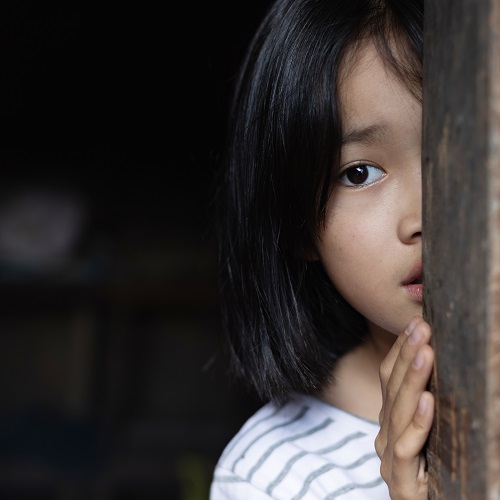27 June 2023
 Dependant children of people impacted by human trafficking and modern slavery are being left unsupported and their needs overlooked, putting families at risk of intergenerational trauma.
Dependant children of people impacted by human trafficking and modern slavery are being left unsupported and their needs overlooked, putting families at risk of intergenerational trauma.
A report by UniSA researcher Dr Nerida Chazal highlights the lack of recognition of dependants as victims themselves and the limited support they receive, putting their psychological and developmental needs at risk.
In Australia, only the police can formally refer victim-survivors to the official government funded Support for Trafficked People Program (STPP), run by the Australian Red Cross.
Currently, victim-survivors with dependants receive minimal additional funding to meet their parenting needs, such as access to family-friendly accommodation and childcare, legal support for dealing with child custody and family law disputes, visa, immigration and citizenship support, as well as the everyday supports needed in raising children.
Dr Chazal also says most dependants are not referred to the STPP as victim-survivors themselves.
“The number of dependants impacted by modern slavery aren’t formally captured in any government reporting and therefore don’t inform an overall understanding of modern slavery in Australia,” she says.
“They become hidden victims and their voices, needs and experiences aren’t recorded or recognised. Dependants can’t be holistically supported if they aren’t assessed as individual clients and victim survivors in their own right.”
Dr Chazal says this funding shortfall and lack of identification can significantly impact the recovery of victims and their families.
“It makes survivors more vulnerable to further exploitation and limits their ability to participate in criminal justice processes,” she says.
“This means that trauma can be passed down from parents to their children, making modern slavery an intergenerational issue in Australia, the effects of which will ripple through the community for decades to come.”
The report titled Hidden Victims, Intergenerational Trauma was released at the Australian Government’s Modern Slavery Conference today in Melbourne.
The report, funded by the Department of Social Services, details interviews with 38 experts, including victim-survivors on the STPP with dependants, Red Cross staff, Australian and overseas service providers and members of the Australian Federal Police.
Participants detailed the impact of the experiences and hardships of victim-survivors of serious exploitation as well as the key issues that victim-survivors with children face.
Australian Red Cross Director of Australian Programs Vicki Mau says the research highlights a critical gap in support for victim-survivors.
“The majority of people who have experienced trafficking or modern slavery are focused on supporting their dependants first; the fear of being separated or not being able to meet their needs is a pressing concern,” she says.
“It is very difficult to address victim-survivors’ needs without addressing their dependants, especially if victim-survivors are full-time carers and/or single parents.”
The report calls on the Australian Government to amend the STPP eligibility criteria to ensure dependants are considered as individual clients.
The report finds that for dependants to be truly supported, it is essential that they are recognised as victims in their own right and referred to the STPP.
The Federal Government recently provided a funding boost of $23.4 million to increase and improve supports available for survivors including additional funding to support survivors with dependants.
Mau says the Red Cross welcomes the announcement of increased support.
“It is an important step towards recognising their needs.”
The boost will also establish a trial of an additional referral pathway for survivors to access support without having to report to police.
Given the new referral pathway, service providers will be key in recognising dependants as victims and referring them to the program.
…………………………………………………………………………………………………………………………
Media contacts:
Melissa Keogh, UniSA Media Team
M: +61 403 659 154 E: Melissa.Keogh@unisa.edu.au
Rachel Tharratt, Senior Adviser, Corporate Affairs & Media, Australian Red Cross
M: +61 451 135 969 E: media@redcross.org.au



